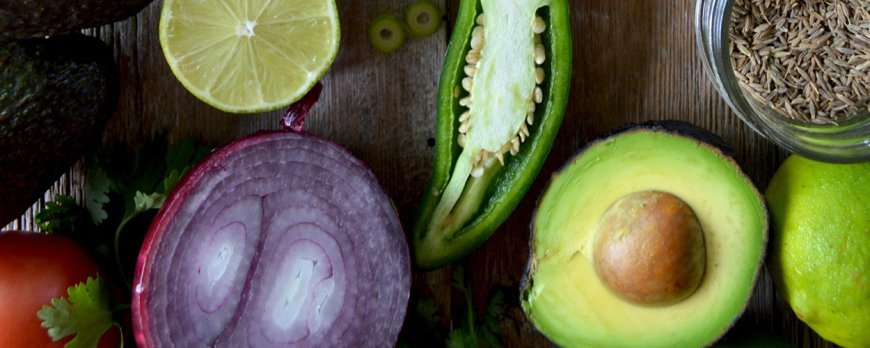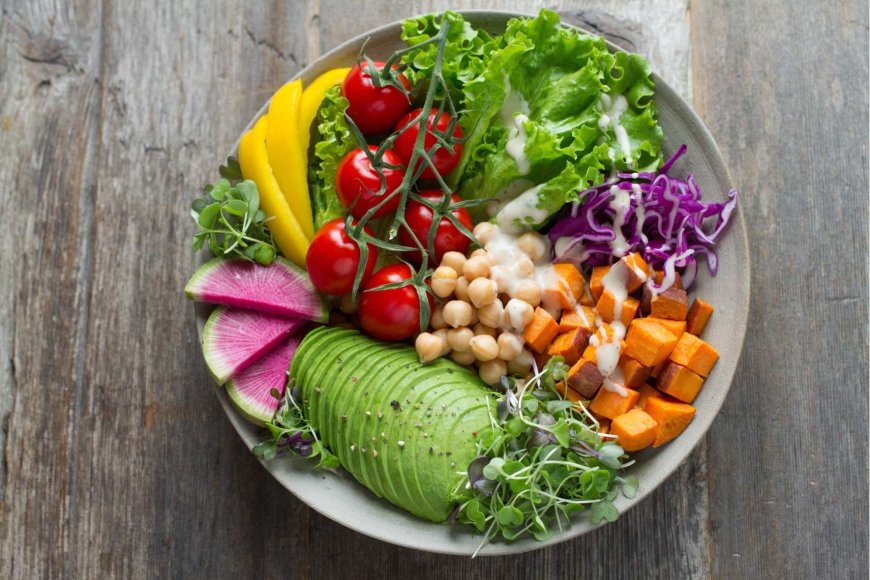What is the healthiest vegetable?
Explore our comprehensive guide while we unravel the answer to 'What is the healthiest vegetable?' Delve into nutrition facts, health benefits, and more.

What is the healthiest vegetable?
Are you wondering what the healthiest vegetable is? In this comprehensive guide, we will unravel the answer and delve into nutrition facts, health benefits, and more.
Key Takeaways:
- All vegetables provide health benefits, but some standout options include spinach, kale, broccoli, peas, beets, carrots, fermented vegetables, tomatoes, garlic, onions, alfalfa sprouts, and sweet potatoes.
- These vegetables are rich in vitamins, minerals, antioxidants, and phytonutrients that support overall health and well-being.
- Including a variety of vegetables in your diet can improve digestion, heart health, brain function, immune system function, and may lower the risk of certain diseases.
- Nutritional content can vary depending on how vegetables are cooked or prepared, with steaming being the most beneficial method for preserving nutrients.
- By incorporating these healthy vegetables into your meals, you can enjoy their numerous health benefits and support your optimal well-being.
Spinach: A Nutrient Powerhouse
Spinach is often hailed as a nutrient powerhouse, and for good reason. This leafy green vegetable is packed with an impressive array of essential vitamins and minerals. It is a great source of vitamin K, vitamin A, vitamin C, folate, iron, and calcium. These nutrients play crucial roles in supporting overall health and well-being.
One of the standout health benefits of spinach is its high antioxidant content. Antioxidants help protect the body against oxidative stress, which can lead to chronic diseases and aging. Spinach is particularly rich in the antioxidants lutein and zeaxanthin, which are beneficial for eye health and may help reduce the risk of age-related macular degeneration.
Incorporating spinach into your diet is easy and versatile. You can enjoy it raw in salads, sauté it as a side dish, or add it to smoothies for an extra nutrient boost. Its mild taste makes it an excellent addition to a wide range of dishes, from pasta sauces to omelets.

Ways to incorporate spinach into your meals:
- Toss a handful of spinach into your favorite salad
- Add spinach to your morning smoothie for a nutritional kick
- Sauté spinach with garlic and olive oil as a delicious side dish
- Blend spinach into pasta sauces or soups for added nutrients
- Wrap your favorite fillings in a large spinach leaf instead of a tortilla or bread
By including spinach in your diet, you can reap the many health benefits this nutrient powerhouse has to offer. So, why not make spinach a staple in your meals and give your body a healthy boost?
Kale: A Superfood for Health
When it comes to superfoods for health, kale takes center stage. This leafy green vegetable is packed with an impressive array of nutrients that can benefit your overall well-being. Whether you enjoy it in salads, smoothies, or sautéed with other veggies, kale is a versatile and delicious addition to any diet.
Health Benefits of Kale
Kale is a nutritional powerhouse, offering a wide range of health benefits. Here are some of the key reasons why you should consider adding kale to your plate:
- High in vitamins: Kale is packed with vitamins A, C, and K, which are essential for supporting immune function, collagen production, and bone health.
- Rich in antioxidants: Kale contains powerful antioxidants like beta-carotene and flavonoids, which can help reduce inflammation and protect against chronic diseases.
- Excellent source of fiber: With its high fiber content, kale can promote healthy digestion, regulate blood sugar levels, and support weight management.
- Abundance of minerals: Kale is a good source of minerals like calcium, magnesium, and potassium, which are crucial for maintaining strong bones, a healthy heart, and proper muscle function.
Nutrition Facts
In addition to its numerous health benefits, kale is also low in calories and carbohydrates, making it a great choice for those watching their weight or managing blood sugar levels. One cup of raw kale contains approximately:
- Calories: 33
- Carbohydrates: 6 grams
- Fiber: 2 grams
- Protein: 3 grams
- Fat: 0 grams
- Vitamin A: 206% of the daily recommended intake
- Vitamin C: 134% of the daily recommended intake
- Vitamin K: 684% of the daily recommended intake
These nutrient-packed statistics make kale a true superfood that can contribute to your overall health and well-being when included in a balanced diet.
Broccoli: The Versatile Veggie
Broccoli, with its vibrant green florets and crunchy stalks, is a versatile vegetable that offers a myriad of health benefits. Packed with essential vitamins and minerals, broccoli is a nutritional powerhouse that can be enjoyed in various ways.
Here are some of the health benefits and nutrition facts of broccoli:
- Rich in Vitamin C: Broccoli is an excellent source of Vitamin C, which supports immune system function and promotes collagen production for healthy skin.
- High in Fiber: This vegetable is high in dietary fiber, which aids in digestion and helps maintain a healthy digestive system.
- Antioxidant-Rich: Broccoli contains antioxidants like beta-carotene and vitamin E, which help protect cells from damage caused by free radicals.
- Good Source of Vitamins and Minerals: Broccoli is packed with essential vitamins and minerals, including vitamin K, folate, potassium, and iron.
Incorporating broccoli into your diet is easy and delicious:
- Enjoy it steamed or roasted as a side dish.
- Add it to stir-fries for a nutritious boost.
- Toss it into salads for added crunch and flavor.
- Blend it into soups or smoothies for a nutrient-packed meal.
Remember, when cooking broccoli, it's best to steam it to retain its nutritional content. By including this versatile veggie in your meals, you can reap its many health benefits and add a burst of vibrant green goodness to your plate.
Peas: Little Green Nutritional Powerhouses
Don't underestimate the power of these tiny green spheres - peas are packed with nutritional benefits. Whether you enjoy them fresh, frozen, or canned, peas are a versatile and nutritious addition to any meal.
Peas are rich in vitamins, minerals, and antioxidants that promote good health. They are a valuable source of vitamin C, which supports a healthy immune system, and vitamin K, which plays a crucial role in blood clotting and bone health. Additionally, peas contain folate, a B vitamin that is important for DNA synthesis and cell division.
These little green powerhouses are also high in fiber, which aids digestion and helps maintain a healthy weight. The fiber content in peas can contribute to feelings of fullness and may help regulate blood sugar levels. Plus, their low glycemic index makes them a great choice for those watching their carbohydrate intake.
When it comes to preparing peas, steaming is the best method to preserve their nutrient content. However, you can also enjoy them in salads, soups, stir-fries, or even as a side dish. Get creative and explore the many delicious ways to incorporate peas into your meals for a nutrient boost that your body will thank you for!
Beets: A Colorful Boost to Your Health
Beets, with their rich hues of red and purple, not only add a splash of color to your plate but also offer numerous health benefits. These vibrant root vegetables are packed with essential nutrients that can support your overall well-being. Here are some key reasons why incorporating beets into your diet can be beneficial:
1. Nutrient Powerhouse
Beets are a nutritional powerhouse, providing a wide array of vitamins, minerals, and antioxidants. They are an excellent source of folate, manganese, potassium, and vitamin C. Folate plays a crucial role in cell function and DNA synthesis, while manganese and potassium are essential for proper nerve and muscle function. Vitamin C, on the other hand, is known for its immune-boosting properties and its role in collagen production, which promotes healthy skin.
2. Heart Health
Beets have been linked to heart health due to their high nitrate content. Nitrates are converted into nitric oxide in the body, which helps relax and dilate blood vessels, improving blood flow and lowering blood pressure. This can potentially reduce the risk of heart disease and improve overall cardiovascular health.
3. Antioxidant-rich
Rich in antioxidants such as betalains, beets can help combat oxidative stress and inflammation in the body. These compounds have been associated with reducing the risk of chronic diseases like cancer and may have anti-inflammatory properties that support joint and gut health.
With their earthy yet subtly sweet flavor, beets can be enjoyed in various ways. They can be roasted, steamed, boiled, or even grated raw to add a unique twist to salads and side dishes. So next time you're looking to elevate your culinary creations, consider incorporating beets for their vibrant colors and numerous health benefits.
Carrots: Crunchy and Nutrient-Rich
Crunchy and vibrant, carrots are not only a satisfying snack but also a nutrient-rich vegetable that supports overall health. Packed with essential vitamins and minerals, carrots are a great addition to any diet. Here are some key health benefits and nutrition facts of this versatile vegetable:
- Boosts eye health: Carrots are rich in beta-carotene, which is converted into vitamin A in the body. Vitamin A is essential for good vision and helps prevent conditions like night blindness.
- Supports digestion: With their high fiber content, carrots promote healthy digestion and prevent constipation. They also contain antioxidants that help reduce inflammation in the digestive system.
- Strengthens the immune system: Carrots contain antioxidants, such as vitamin C, that support immune system function and protect against common illnesses and infections.
- Promotes heart health: The potassium and fiber in carrots contribute to heart health by helping to regulate blood pressure and cholesterol levels.
- Aids in weight management: Carrots are low in calories and high in fiber, making them a filling snack that can help with weight management and promote feelings of satiety.
To fully enjoy the health benefits of carrots, it's best to include them in your diet in raw or lightly cooked form. Steaming or roasting carrots helps to retain their nutritional value. Whether added to salads, stir-fries, or enjoyed as a standalone snack, carrots are an easy and delicious way to boost your overall health.
Fermented Vegetables: A Boost for Gut Health
You may have heard about the recent buzz surrounding fermented vegetables, and there's a good reason for it - they offer unique health benefits, particularly for gut health. Fermented vegetables are a rich source of probiotics, which are beneficial bacteria that help support a healthy digestive system. These friendly bacteria promote a balanced gut microbiome, which plays a crucial role in overall health and well-being.
When vegetables undergo fermentation, their sugars and starches are broken down by lactic acid bacteria. This process not only enhances the flavor and texture of the vegetables but also increases their nutrient content. Fermented vegetables are packed with vitamins, minerals, and antioxidants, making them a nutritious addition to any diet.
The Benefits of Fermented Vegetables for Gut Health
- Promote a healthy gut microbiome
- Support digestion and nutrient absorption
- Boost immune system function
- Reduce digestive issues such as bloating and gas
- May help alleviate symptoms of certain digestive disorders
Including fermented vegetables in your diet is easy. You can enjoy them as a side dish, add them to salads, or use them as toppings for sandwiches and wraps. Some popular examples of fermented vegetables include sauerkraut, kimchi, and pickles. When purchasing fermented vegetables, opt for brands that use traditional fermentation methods and avoid pasteurization, as this can kill beneficial bacteria.
Remember to consume fermented vegetables in moderation, especially if you are new to them, as they can have a strong flavor. Gradually increase your intake to allow your taste buds and digestive system to adjust. By incorporating fermented vegetables into your diet, you can support your gut health and reap the unique benefits they offer.
Tomatoes: A Juicy Source of Antioxidants
Bursting with juicy goodness and vibrant colors, tomatoes are not just a popular ingredient in countless recipes but also a potent source of antioxidants. These delicious fruits, yes, tomatoes are technically fruits, are packed with essential nutrients and have numerous health benefits.
Tomatoes are rich in vitamin C, which is a powerful antioxidant that helps protect the body against oxidative stress. They also contain vitamin A, potassium, and other vitamins and minerals that contribute to overall health. Additionally, tomatoes are a great source of lycopene, a natural pigment that gives them their red color and is known for its antioxidant properties. Lycopene has been linked to a reduced risk of certain types of cancer and heart disease.
Nutrient Content of Tomatoes:
- Vitamin C
- Vitamin A
- Potassium
- Lycopene
To maximize the nutritional benefits of tomatoes, it's best to consume them raw or lightly cooked. Heat can actually increase the availability of lycopene in tomatoes, making it easier for the body to absorb. Combining tomatoes with a source of healthy fats, such as olive oil, can also enhance the absorption of lycopene.
Whether enjoyed in salads, used in sauces, or simply eaten on their own, tomatoes are a versatile and delicious addition to any diet. So next time you're grocery shopping, be sure to pick up some ripe tomatoes and reap the numerous health benefits they have to offer.
Garlic and Onions: Flavorful Bulbs with Health Benefits
When it comes to adding flavor and depth to your meals, garlic and onions are kitchen staples, but did you know they also offer remarkable health benefits? These flavorful bulbs pack a nutritional punch, making them more than just savory additions to your dishes.
Garlic is known for its potent taste and aroma, but it also contains a compound called allicin, which has been linked to various health benefits. Allicin has antioxidant properties that can help reduce inflammation in the body, support cardiovascular health, and even boost the immune system. Additionally, garlic is a good source of vitamins C and B6, manganese, and selenium, all of which play important roles in maintaining overall health.
Onions, like garlic, contain unique compounds that contribute to their health benefits. They are rich in quercetin, a powerful antioxidant that may help reduce the risk of chronic diseases such as heart disease and certain types of cancer. Onions are also a good source of vitamin C, vitamin B6, and dietary fiber, which can aid in digestion and promote a healthy gut.

How to Incorporate Garlic and Onions into Your Diet:
- Add minced garlic and chopped onions to stir-fries, soups, and sauces for an aromatic and flavorful boost.
- Roast whole garlic cloves and caramelized onions as a delicious side dish or topping for meats and vegetables.
- Use garlic-infused oil or onion powder as an alternative seasoning to enhance the taste of your meals.
- Add thinly sliced onions and minced garlic to salads, sandwiches, and wraps for added crunch and flavor.
- Experiment with different varieties of onions, such as red, white, and sweet onions, to explore unique flavors and textures.
By incorporating garlic and onions into your diet, you not only enhance the taste of your meals but also reap the numerous health benefits they offer. Remember, moderation is key, and it's always best to consult with a healthcare professional if you have any specific dietary concerns or medical conditions.
Sweet Potatoes: Nutrient-Dense and Delicious
With their natural sweetness and vibrant colors, sweet potatoes are not only a delicious addition to your meals but also a nutrient-dense vegetable that offers a host of health benefits. These root vegetables are packed with essential vitamins, minerals, and antioxidants that contribute to overall well-being. Let's explore the health benefits and nutritional facts of sweet potatoes.
1. Rich in Vitamins and Minerals
Sweet potatoes are a great source of several vitamins and minerals. They are especially high in vitamin A, which promotes eye health and boosts the immune system. Additionally, sweet potatoes contain vitamin C, vitamin B6, potassium, and fiber, all of which are important for maintaining good health.
2. High in Antioxidants
The vibrant orange color of sweet potatoes indicates the presence of antioxidants, such as beta-carotene. These antioxidants help protect the body against cell damage caused by free radicals and may reduce the risk of chronic diseases, including heart disease and certain types of cancer.
3. Support Digestive Health
Thanks to their high fiber content, sweet potatoes can aid in digestion and promote a healthy gut. Fiber adds bulk to your stool, preventing constipation, and supports the growth of beneficial gut bacteria. Including sweet potatoes in your diet can help maintain a healthy digestive system.
Incorporating sweet potatoes into your meals is easy. You can enjoy them roasted, mashed, baked, or even used as a base for nourishing bowls and soups. Whether as a side dish or a main course, sweet potatoes add both flavor and nutrition to your meals. So, next time you're grocery shopping, don't forget to include these nutrient-dense and delicious vegetables in your cart!
In Conclusion: A Rainbow of Healthy Vegetables
Congratulations! You've now discovered a rainbow of healthy vegetables that can support your overall health and well-being.

When it comes to determining the healthiest vegetable, it's difficult to pick just one. However, there are several standout options that offer an array of health benefits. Spinach, kale, broccoli, peas, beets, carrots, fermented vegetables, tomatoes, garlic, onions, alfalfa sprouts, and sweet potatoes are all nutrient-dense powerhouses that can boost your nutrition.
These vegetables are packed with essential vitamins, minerals, antioxidants, and phytonutrients that play a vital role in supporting various bodily functions. Including a diverse range of vegetables in your diet can help improve digestion, promote heart health, enhance brain function, boost the immune system, and even lower the risk of certain diseases, such as cancer and diabetes.
It's important to note that the nutritional content of vegetables can vary depending on how they are cooked or prepared. To maximize the benefits, opt for cooking methods like steaming, which preserve the nutrients. This way, you can enjoy all the goodness these vegetables have to offer.
So, be adventurous in your culinary endeavors and embrace the vibrant colors and flavors of these healthy vegetables. Incorporate them into your meals, salads, smoothies, or even try new recipes that feature these wholesome ingredients. Your taste buds and your body will thank you for it!
FAQ
What is the healthiest vegetable?
It's difficult to determine the healthiest vegetable as all vegetables provide health benefits. However, some standout options include spinach, kale, broccoli, peas, beets, carrots, fermented vegetables, tomatoes, garlic, onions, alfalfa sprouts, and sweet potatoes.
What are the health benefits of these vegetables?
These vegetables are rich in various vitamins, minerals, antioxidants, and phytonutrients that support overall health and well-being. Including a variety of vegetables in the diet can help improve digestion, heart health, brain function, immune system function, and may even lower the risk of certain diseases such as cancer and diabetes.
How should I cook or prepare these vegetables for maximum nutritional benefits?
The nutritional content of vegetables can vary depending on how they are cooked or prepared. Methods like steaming are the most beneficial for preserving nutrients. It is recommended to experiment with different cooking techniques to find what works best for you.
How can I incorporate these vegetables into my diet?
There are many ways to enjoy these vegetables. You can add spinach and kale to smoothies, make salads with broccoli and peas, roast beets and carrots for a flavorful side dish, use fermented vegetables as a topping or condiment, include tomatoes, garlic, and onions in sauces or salsas, and bake or mash sweet potatoes for a nutritious alternative to regular potatoes.
Are there any specific nutrients these vegetables are known for?
These vegetables are known for their various nutrients. Spinach and kale are rich in iron and vitamin K. Broccoli is a good source of vitamin C and folate. Peas are high in fiber and vitamin A. Beets are a good source of potassium and antioxidants. Carrots are known for their beta-carotene content. Fermented vegetables provide probiotics for gut health. Tomatoes are rich in lycopene. Garlic and onions contain beneficial compounds like allicin. Sweet potatoes are packed with vitamin A and fiber.
Can I eat these vegetables raw or do they need to be cooked?
These vegetables can be enjoyed both raw and cooked. Some nutrients may be more bioavailable when they are cooked, while others are better retained in their raw state. It's recommended to include a mix of raw and cooked vegetables in your diet for maximum nutritional benefits.





























































































































